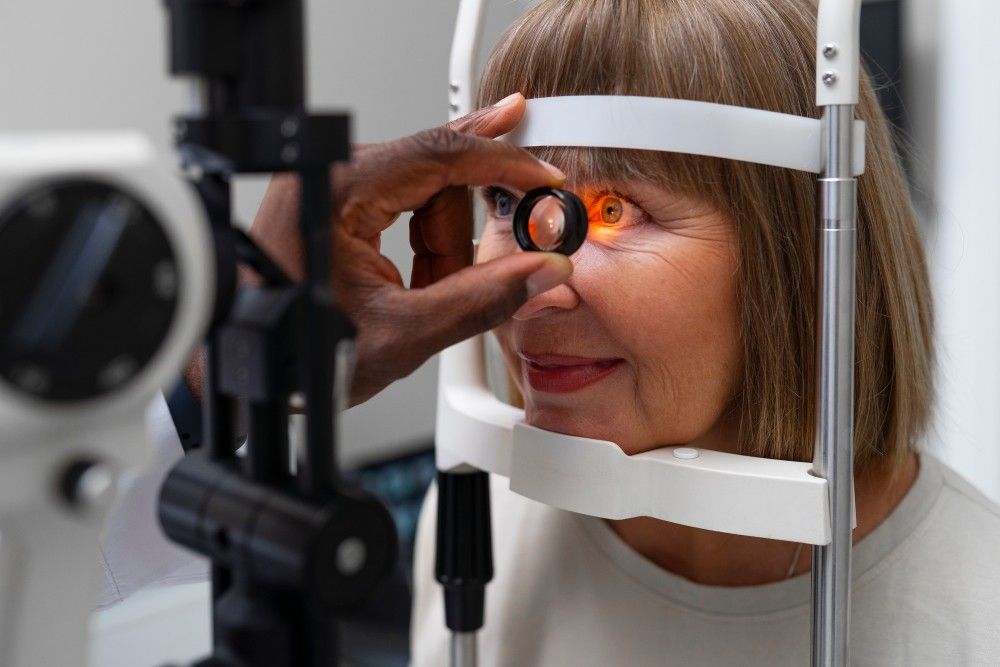By DPA Admin
•
January 19, 2026
Tired of fumbling for glasses every morning or squinting at Austin's road signs? Imagine soaking in sunset hikes at Barton Springs – spectacle-free! Hill Country Eye Centre's premium refractive eye surgery can make it happen. Our expert team tailors cutting-edge solutions to provide comprehensive eye care. We offer LASIK, glaucoma management, dry eye treatment, diabetic eye exams, and general ophthalmology services. Visit the clinic for any queries regarding your Austin eye surgery procedure. Before Austin eye surgery , you can ask about your concerns regarding recovery time, the surgery cost, post-surgery care, etc. Questions to Ask Before Your Austin Eye Surgery 1. Am I Fit for Eye Surgery, LASIK, RLE, or Cataract Surgery in Austin? You are thinking about whether you are a good fit! You can ask your ophthalmologist. Factors like corneal thickness, eye health, age, and conditions like dry eyes or thin corneas play a role. A comprehensive exam can determine your suitability. In case your ophthalmologist identifies any health issue or pre-existing eye condition, they will disqualify you for surgery. 2. Who will Perform My Eye Surgery? Visit The Hill Country Eye Centre and meet your surgeon! Look for fellowship-trained ophthalmologists with successful procedures. Experience matters, so ask about their track record. Our surgeons have a high success rate for restoring visibility and performing surgical operations effectively. At the Hill Country Eye Centre, we are proud to have some of the best surgeons in Texas. ● Dr Vincent A. Restivo, M.D. - The Board-certified ophthalmologist ● Nathan E. Osterman, O.D. - The Certified therapeutic optometrist and glaucoma specialist in Texas ● Dr Todd R. Shepler - Experienced in reconstructive and oculoplastic surgery ● Dr Chelsea Devitt - Optometric glaucoma and therapeutic optometry specialist in Austin 3. Do I have Other Health Conditions that Can Rule out Austin Eye Surgery or Affect Results? Yes. Definitely ask about conditions that might affect surgery. Some health issues can rule out Austin eye surgery or require treatment first. These include ● Autoimmune Diseases ● Diabetes ● Immunodeficiency States ● Eye Injuries ● Dry Eyes ● Eye Inflammation ● Corneal Scaring ● Glaucoma ● Cataracts ● Ocular Herpes ● Retinal Diseases 4. Is Eye Surgery, Cataract or LASIK Safe? What are the Risks? LASIK surgery is a quick and pain-free procedure that takes around 15 minutes for both eyes. You can see results within 24 hours! In fact, 99% of patients at Hill Country Eye Centre reported being satisfied with the results. Cataract surgery, while not 100% risk-free, is a highly effective and secure solution with incredible success rates. Now, let's talk about risks. Minor complications can include infection, bleeding, or dry eyes, but they're rare. Discuss personal risks with your doctor. 5. What Results Can I Realistically Expect? Ask your most desirable expectation, the magic number! When will you get a complete clear vision and return to regular life after Austin eye surgery ? Most patients enjoy improved, clear vision within a few days after surgery. At the same time, LASIK patients achieve 20/20 vision, while cataract patients enjoy gradual improvement with premium IOLs. 6. What will the Procedure be like for Clear Vision? If your doctor suggests cataract surgery , ask your doctor: ● Which procedure suits your case? ● Will they use a laser in the procedure? ● How long will it last? ● Will you be awake during the entire eye surgery procedure? 7. How Long Does the Procedure and Recovery Take? It is tricky to answer the exact time. Usually, eye surgery such as LASIK... LASIK takes 15 minutes, while cataract surgery takes 30 minutes. Some patients begin to notice clear vision within a week. But some of them report complete restoration of eyesight within 1 month. Individual patients are different, so you all have different progress timelines after surgery. Recovery is quick, but you must follow appointments, doctor appointments at Hill Country Eye Centre, to take advice. 8. What Alternatives or Enhancements are Available? Explore your Austin eye surgery options! If LASIK isn't for you, consider Photorefractive Keratectomy (PRK), or Laser Epithelial Keratomileusis (LASEK). Your surgeon can discuss tailored solutions. The PRK process takes a little longer to achieve the best vision. Our advanced professionals cater to the unique needs of every patient in the Boston area. At Hill Country Eye Centre, doctors will guide you through the selection process of your treatment. 9. What is the Total Price, Including Follow-Ups? Get the price breakdown! Costs vary by procedure and tech, but transparent pricing and insurance coverage can help. 10. What Post-Surgery Care and Follow-Ups Do You Provide? Expect regular check-ups, antibiotic drops, and protective eyewear. Our doctors guide you for post-surgery care. ● For 5-7 Days: Report better vision progressively ● Initial 2 Weeks: The doctor will guide you and prescribe antibiotics and anti-inflammatory eye drops. Wear glasses and protective shields during the day and night. ● Preliminary 2 Months: For now, avoid scratching your eyes



